The Ultimate Resume Guide for Developers
Image loading...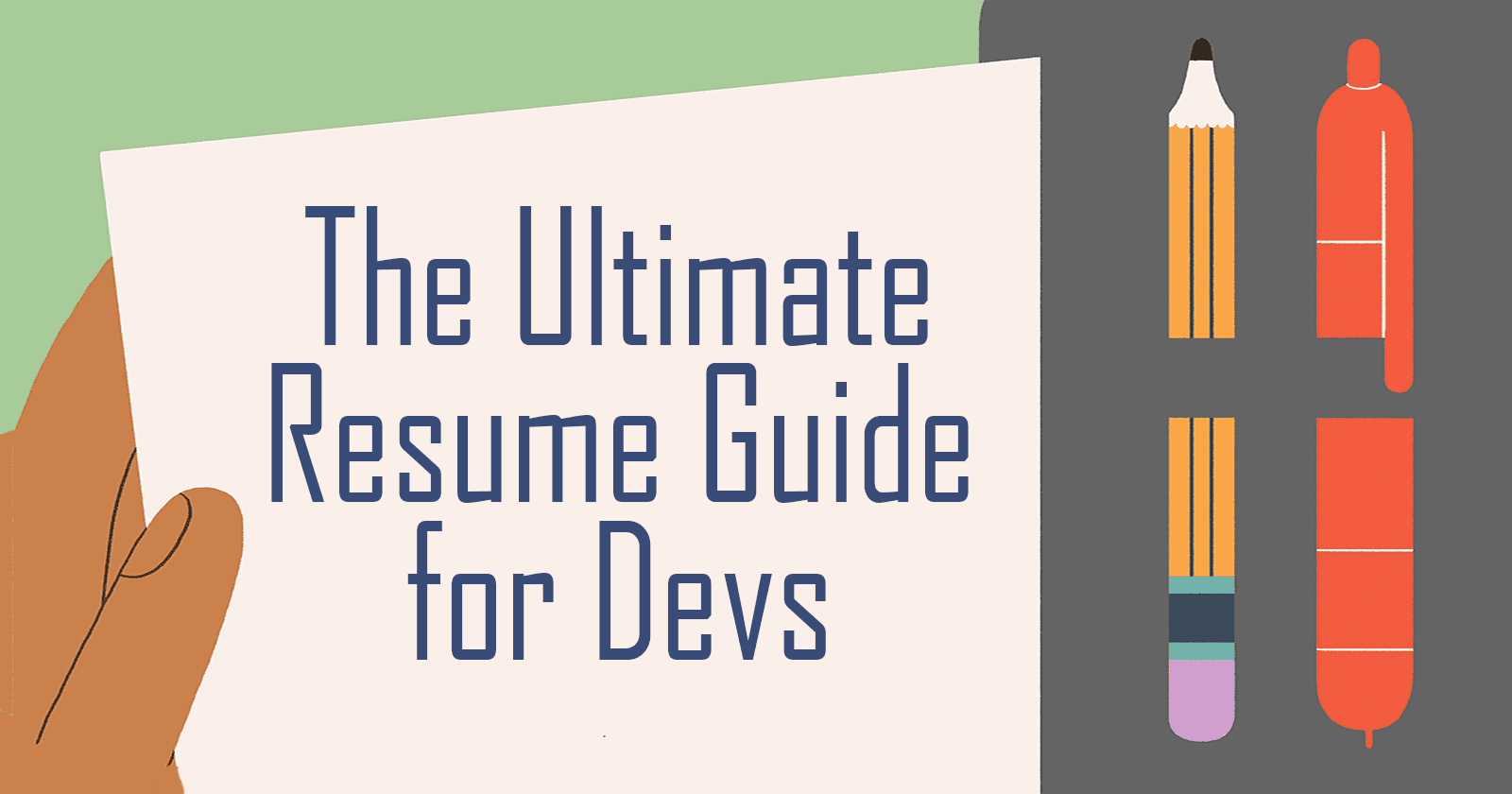
There's no such thing as the "perfect" resume, but there is a perfect audience for your resume.
Recently, many of my readers have asked me to review their resumes so I thought I should just write an article on it. In this article, I'd like to share some tips on how to craft a resume for your targeted industry, how to make it from good to great and highlight some common mistakes that should be avoided. I hope this article will help a lot of you who are currently looking for jobs so let's get started.
First, let's learn about why resumes are important.
Resumes : A Constant Work-in-Progress
When I was a student, I remembered my professor saying this,
"A resume will always be a work-in-progress. If you keep evolving, you have to keep updating your resume. If you stop evolving, that's when you can stop updating your resume."
I agree with what he said because your resume should represent your best and most current work. Whether you are a student, job-seeker or professional in your industry, you will want to update your resume every once in a while. This will not only make you reflect on your accomplishments, but also ensure that your resume is up-to-date whenever you need it.
Okay vs. Good vs. Wow
With that said, now let's dive in on what I'd like to call the 3 levels of resume quality: Okay, Good and Wow. It is important to learn the characteristics of each level of resume to understand how to stand out from the crowd.
😐 Okay resumes
In this level, the resume is well-structured and well-formatted, with no grammar or spelling mistakes. But it is a merely historical snapshot about you, describing where and what happened in terms of your accomplishments. There is no specific evidence, impact or skills you have included. It is quite forgettable.
😊 Good resumes
Good resumes include everything mentioned about okay resumes and more. What makes them better than okay resumes is that good resumes connect the experiences and accomplishments back to the person's skills. Unlike okay resumes which only states historical facts, good resumes use those facts to show the person's strengths and skills.
Good resumes make a light impact on the reader. If the reader is looking for certain qualities and the good resume highlighted that, it can be adequate to land an interview with this level of resume.
🤩 Wow resumes
A resume at this level is when it highlights skills that are tailored to what the reader is look for. It described accomplishments and experiences in a specific relevant context with quantifiable results that provide undeniable proof of your skills.
Another characteristic of a wow resume is that it is able to communicate your unique strengths and personality in a positive and impactful impression for the reader. It represents you as a person with the qualities and skills that the reader is exactly looking for. It lands a guaranteed interview with a decent (50%) success rate for an offer if the interview goes well.
In short, a wow resume has the following characteristics:
- Perfect spelling and grammar
- Communicate specific accomplishments, experiences and skills used to achieve positive quantifiable results
- Show appealing and relevant qualities and achievements to the target reader
- Genuinely address what the reader is looking for
Format
Now let's talk about the format of a resume.
- Font Size – 10pt to 12pt
- Font – Keep it professional like Arial, Times New Roman, etc.
- Length – keep it to 1 full page
- Margins – Use them wisely, usually 0.5 to 1 inch is fine
- Text Alignment – Left
- Line spacing – 1 to 1.5
- Use bullet points and be concise
- Use active voice (i.e. "Implemented an app" not "an app was implemented")
- Perfect spelling and grammar (remember to use past tenses for previous roles and present tense for ongoing roles)
Content
A developer's resume must include these:
- Your Name
- Skills
- Work Experience
- Education
- Contact Information (usually top of resume)
Optional areas to include to help make it stand out:
- Your photo
- Introductory header or resume objective
- Highlights/ Personal Projects
- Links (i.e. Github, LinkedIn, Personal website)
- Additional Information about you (i.e. hobbies/interests, non-technical skills)
Writing the Main Content
The most important section that can help you stand out is your work experience. The specific tasks and achievements you write under this section can say a lot about your skill level and work values.
Here are some things you can do to get started writing out the main content of your resume:
1. List some skills/values
First, list the skills that the company is looking for. Most companies usually have a job description that states the skills they need for a potential candidate. You can even do further research on the company (use social media, websites and connections) to find out their values and what they primarily look for in a candidate.
Next, list your own skills and values. In order to be considered for the role, your skills and values need to align with the ones the company is looking for. Select the ones that you have that will grab the attention of the employer.
2. Reflect on your experiences
Take a look at the list of skills and values that you've decided to highlight and appeal to your target audience. Now, reflect on your experience (preferably most recent ones) that showcases these skills and values.
For example, if the company you're targeting is looking for someone good at problem-solving. Think about a time when you actually solved a difficult problem. How did you manage to solve it? Did you identify this problem yourself? How did the people around you think about your solution? What was the impact of your solution (use numbers if possible)?
3. Construct concise impactful points
After thinking about your experiences, construct them into digestible, quick-to-read bullet points.
A good format is to:
- Action (What you did)
- Context (The details)
- Result (Your impact with numbers if possible)
Here are some examples:
Image loading...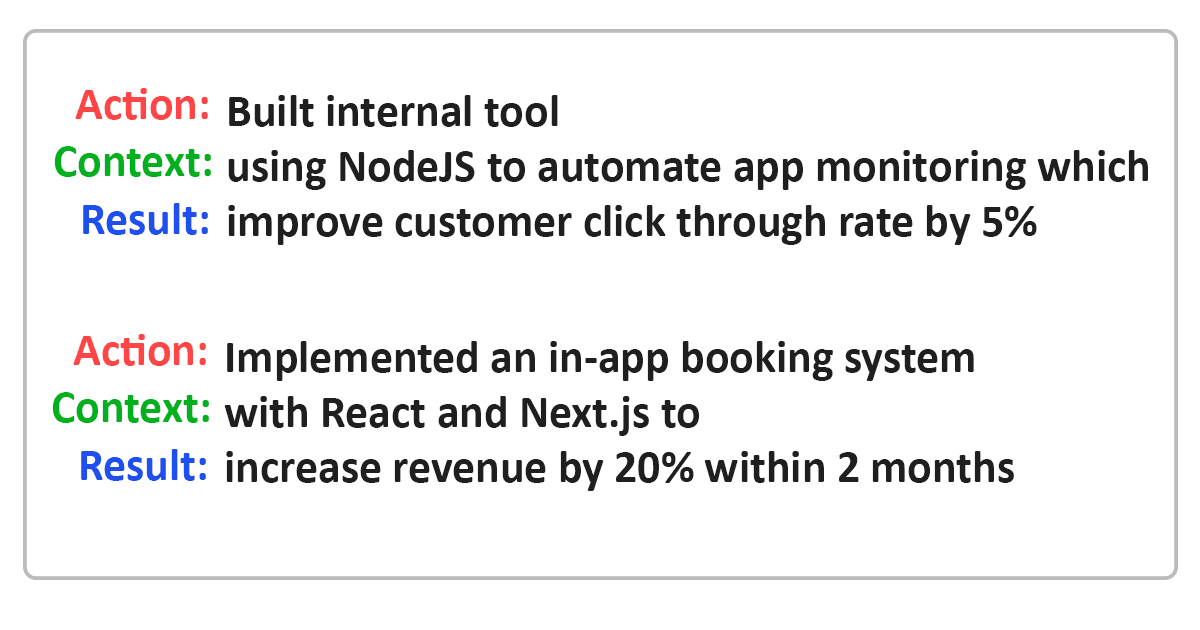
Start with action verbs that are relevant in the tech industry such as "built, developed, implemented, integrated, etc". Then, move on to describing the problem or the technologies/skills you used. Remember to include this has to align with what the company is looking for. Finally, end off the sentence with the impact of your action. Use numbers as evidence because it makes your accomplishment more quantifiable and easier to understand the size of your impact.
Each work experience should have 2-3 bullet points of these statements. If you have space for more, then you can have 4 points at most. Keep it concise and to the point.
Common Mistakes
With that, you should be on your way to creating a great resume for yourself. This article is getting long, isn't it? But there's one last thing I want to mention: common mistakes.
1. Not having a target audience
It is a well-known fact that most employers only scan the resume for 6 seconds before putting it aside. Therefore, your resume has to be tailored to their needs and expectations in order to grab their attention in those 6 seconds.
Writing a general, non-tailored resume will hardly appeal to anyone, and you will have wasted a good opportunity. So research who your audience is and write a great resume for that reader.
2. Not using strategically chosen words
Keywords are very important. Include the words that are relevant to the role you are applying for. It does not make sense to use "managed", "approved" if you are not applying for the managerial role.
If a role specifically ask for a Java developer, don't go using "JavaScript" or "php" on your resume. Be mindful of the keywords that you choose to include in your resume.
Example of resume with good details on technical skills but lack of action keywords (fictional person):
Image loading...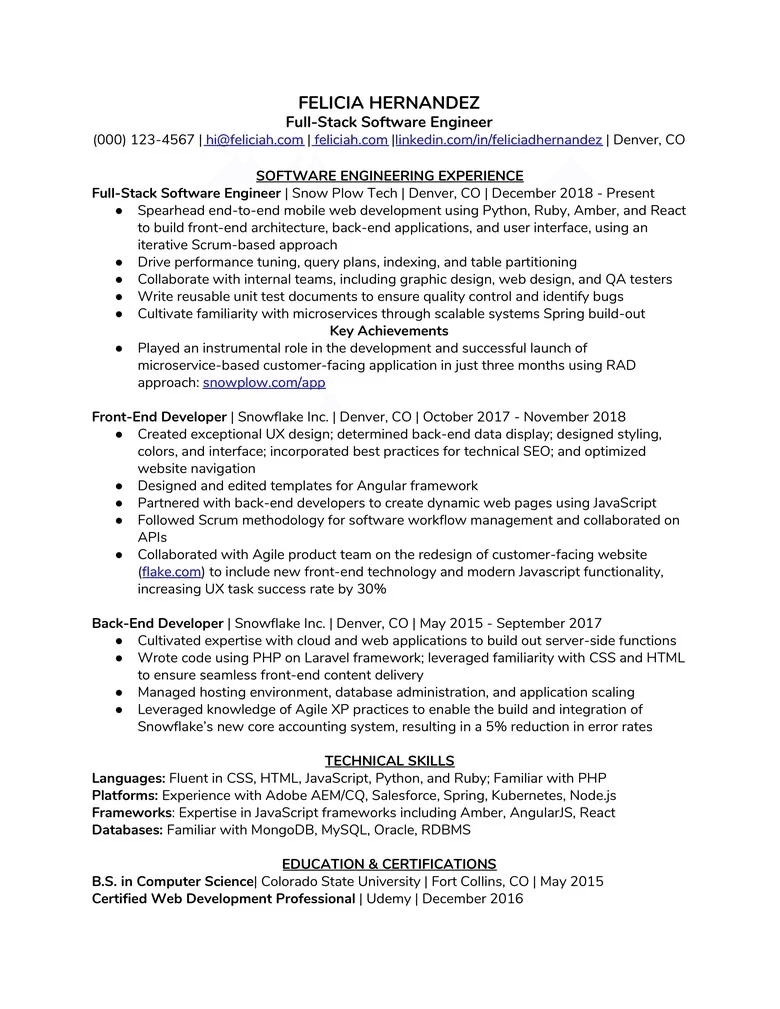
3. Too wordy/Not enough words
When describing your work experience, using the action-context-result format can help you gauge the proper length for it. Make all that information fit into 1 sentence and include enough details for the reader to learn about your strengths.
Using too many words and not being direct may make the message less clear for the reader. If they need to pause and interpret/infer what you're trying to tell them, that is a sign that you need to cut down.
Example of too wordy resume with too many bullet points (fictional person):
Image loading...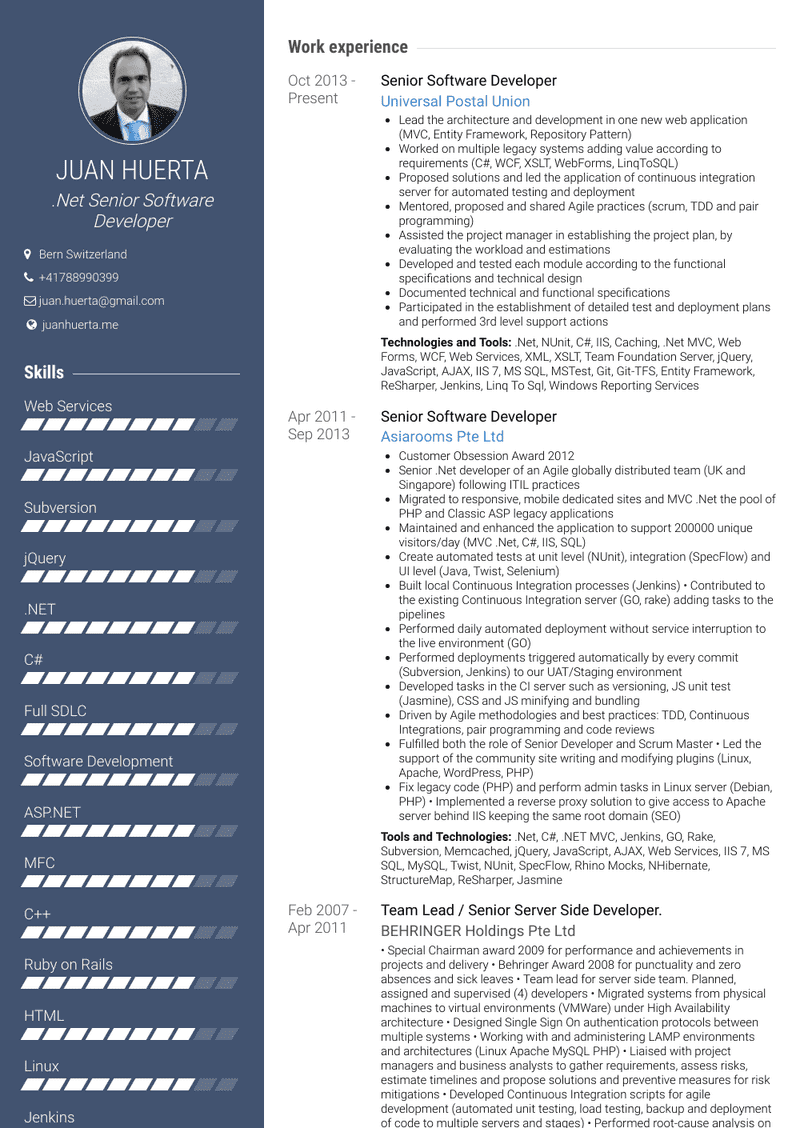
4. Not including results
You can go on describing how well you built a project but without mentioning the results or impact of your actions, it is hard for the reader to understand how much you have contributed in your role.
Example of resume that's well-written but no impactful results mentioned (fictional person):
Image loading...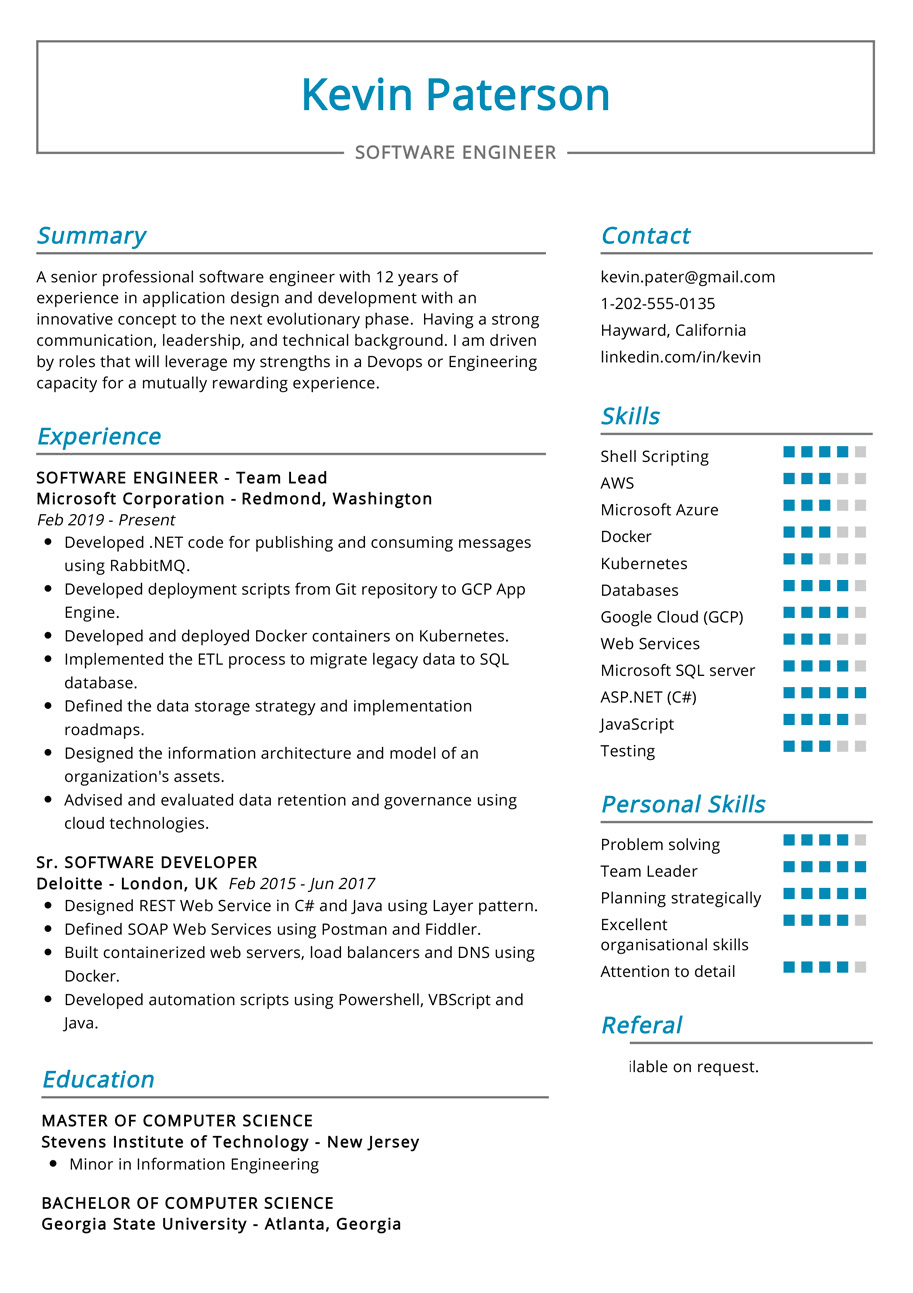
Examples
Here are a few resumes I found that are excellent for inspiration (fictional people).
Image loading...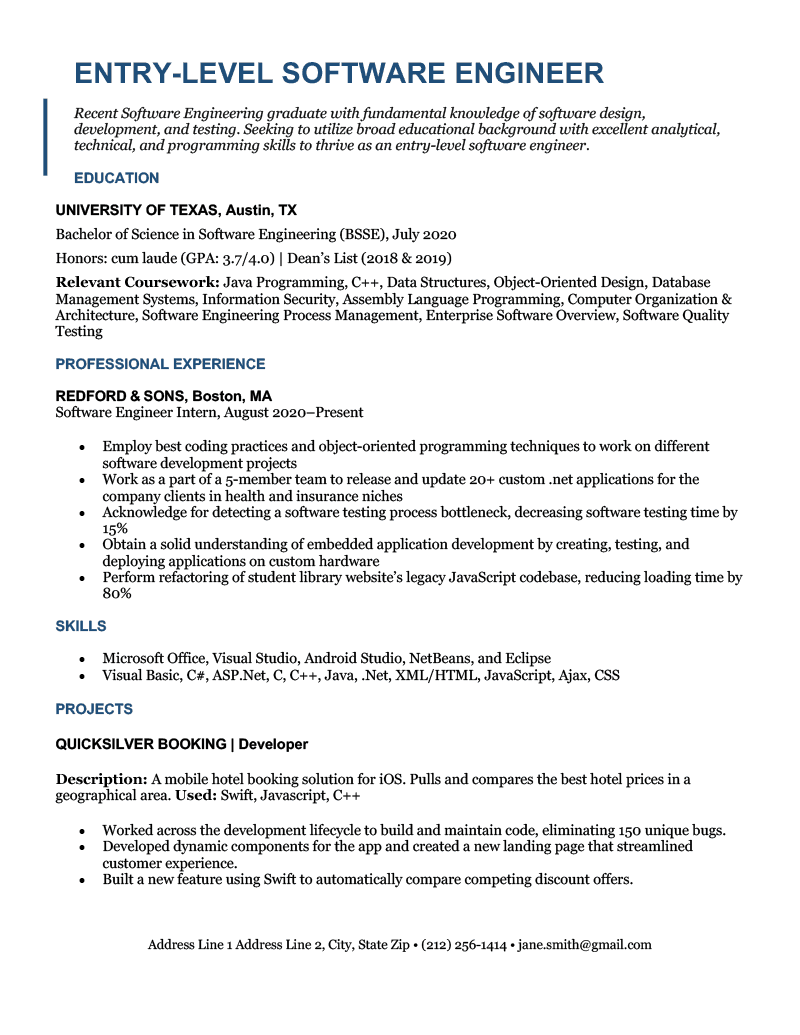
Source: https://resumegenius.com/wp-content/uploads/Entry-Level-Software-Engineer-Resume-Sample-1.png
Image loading...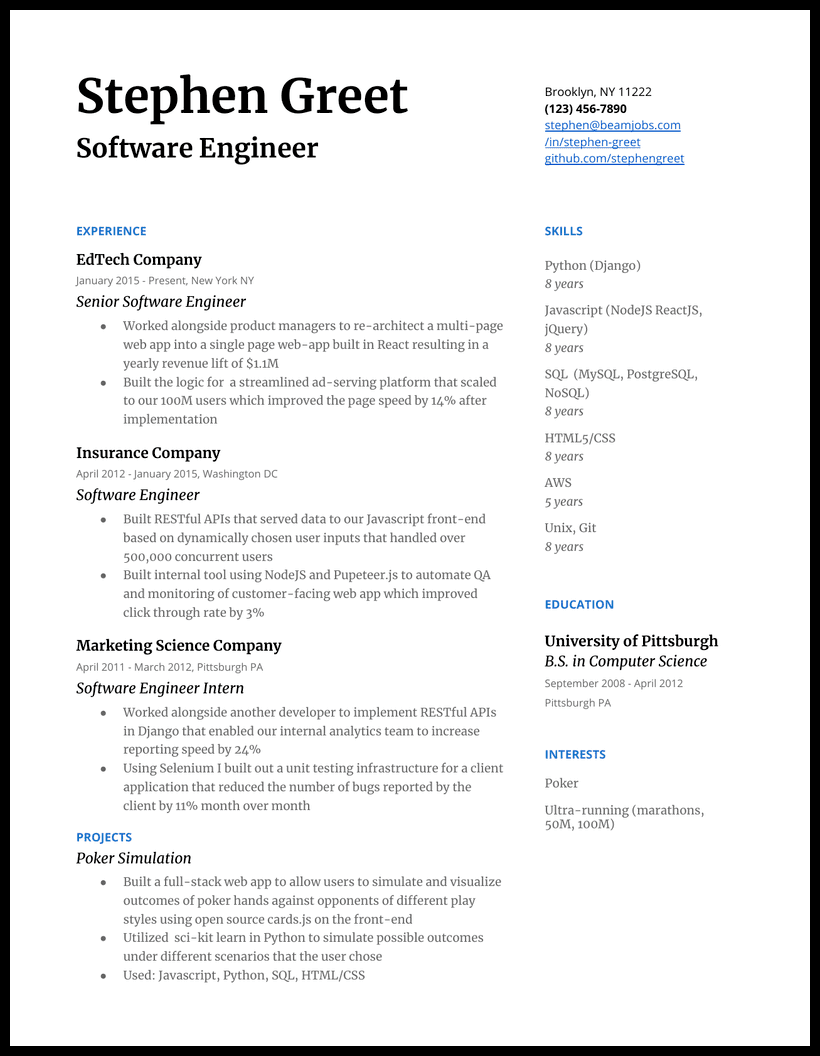
Source: https://cdn.buttercms.com/lQoWeAzkSoWUGw5o0mL4
Image loading...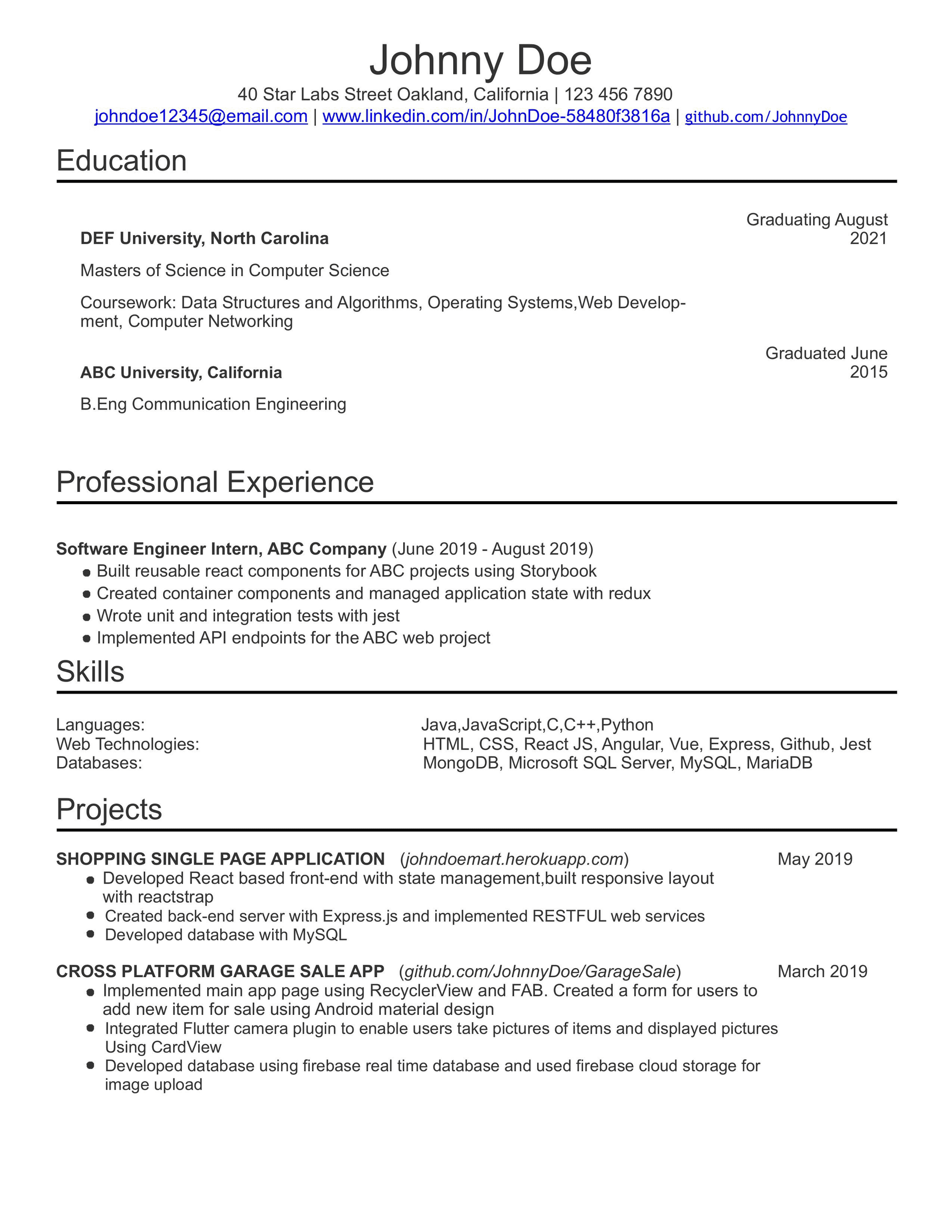
Source: https://cdn-images.resumelab.com/pages/software_engineer_resumelab_1.png?1577050311
Conclusion
Thanks for reading this article. I hope it has helped and provided some value to you. If it's helpful in any way, remember to like and share this article for more reach.
Feel free to reach me in the comments for questions and I wish you the best of luck in writing a wow resume for your dream company. Cheers!